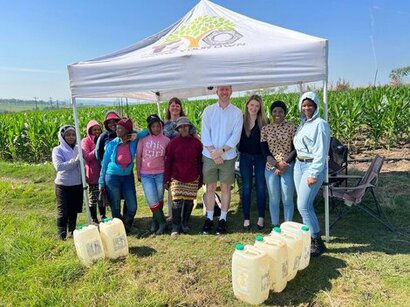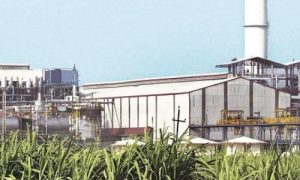UK and South Africa partner on project to turn sugar into energy on large scale

AgriSound, with UK Agri-Tech Centre and GYO Systems, leads a project to enhance sugarcane yields in South Africa, tackling pests and boosting bio-energy production. Urban hydroponic initiatives aim to benefit communities. Dr. Jenna Ross OBE highlights benefits of biomass and carbon neutrality. The project targets South Africa’s energy challenges, receiving £200,000 grant for sustainability. CEO Casey Woodward emphasizes the project’s holistic impact on agriculture, energy, and social development.
The groundbreaking project led by a British agri-technology company, York-based specialists in agricultural bioacoustic AI technology, AgriSound, is working with the UK Agri-Tech Centre and GYO Systems based in South Africa, to help improve yields of sugarcane through improved monitoring of crop pests. The project will also investigate the use of innovative hydroponic technologies, all with the aim of increasing growth in bio-energy production in South Africa.
With 85 percent of South Africa’s energy being generated via coal, the project is set to make a significant impact on the production of renewable energy across the nation. AgriSound will deploy the innovative ‘Polly’ insect listening device to enable growers to track and eliminate the increasing damage caused by destructive pests such as the Eldana Stalk Borer. The data generated will enable actionable outcomes to help growers harvest more abundant sugarcane crops in a sustainable and nature-based way, all within existing production areas therefore avoiding compromising competing land priorities.
As well as improved pest monitoring, the project will also investigate expanding bio-energy production near urban land areas that would otherwise be inappropriate for housing or food through the introduction of innovative low-cost hydroponic technologies. This element of the project will target Camperdown, KwaZulu-Natal, an urban settlement close to one of the main sugarcane growing areas in South Africa, approximately 60 kilometres northwest of Durban and 20 kilometres southeast of Pietermaritzburg. The initiative will directly benefit underserved communities in the area, with the team delivering inclusive and accessible training on the technologies.
“The increased availability of sugarcane has the potential to be used to generate bio-energy, a type of renewable energy with the potential to replace fossil fuels” said Dr Jenna Ross OBE of the UK Agri-Tech Centre. “As biomass grows, it absorbs carbon from atmosphere which is then released when incinerated. This makes biomass carbon neutral. Therefore, sugarcane offers massive economic and environmental rewards for South Africa. However, with yields seriously impacted by crop pests and excess land-use for crops under heavy scrutiny due to competing food/housing resources, this project aims to solve two pressing local problems in one move all whilst working closely with local communities to deliver employment and economic development opportunities.”
South Africa’s critical energy production challenges are also exacerbated by the ongoing ‘load-shedding’ episodes, often leaving more than half of the population without power due to the inadequate power infrastructure. Utilising bioenergy has strong potential to be a game-changer for the nation’s sustainability drive and need for more reliable power sources.
The project, led by AgriSound, has received a grant of over £200,000 from Innovate UK’s African Innovation Collaborations for Net Zero Places.
“We are embarking on an ambitious mission to pivot South Africa towards a net-zero carbon economy by optimising bio-energy production” added Casey Woodward, founder and CEO of AgriSound. “This project is more than an innovation in agriculture; it’s about reshaping the country’s energy landscape and uplifting its people to continue doing so on their own terms. We have begun work this month and our aim for the project is to harness the power of nature-based solutions to revolutionise the South African agricultural landscape. We expect it to contribute to tackling the energy crisis and climate change while providing substantial economic and social improvements, and reduce the country’s carbon footprint, all within the span of 12 months. AgriSound’s long-term plan is not only aimed at boosting energy generation but will also ensure the land remains fertile and available for future food and housing needs.”
Image: Representatives from the UK Agri-Tech Centre and GYO Systems, alongside project participants from Camperdown, KwaZulu-Natal, who will be working on the hydroponic element of the project.
Source Link : https://www.renewableenergymagazine.com/biomass/uk-collaborates-with-south-africa-on-project-20240531















